 September 2019 in “The journal of investigative dermatology/Journal of investigative dermatology”
September 2019 in “The journal of investigative dermatology/Journal of investigative dermatology” Tet1/2/3 enzymes affect hair follicle cell development by influencing BMP signaling.
January 2019 in “Archives of dermatology and skin care” Biomimetic peptides were found to promote hair growth and prolong the growth phase in human hair follicles.
 January 2018 in “Springer eBooks”
January 2018 in “Springer eBooks” Gender affects hair and scalp characteristics, with differences in hormone responses, graying patterns, and trace metals.

Plucked hair follicles grow faster than conventional ones, making them a potentially better option for hair transplants.
MicroRNA miR-22 causes hair loss by making hair follicles regress early.

Early treatment is important for better hair regrowth in elderly women with hair loss.
 April 2011 in “The FASEB Journal”
April 2011 in “The FASEB Journal” Aralia continentalis root extract may help with hair growth.
 April 2010 in “The FASEB Journal”
April 2010 in “The FASEB Journal” Korean ginseng berry may help with hair regrowth.
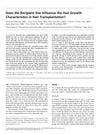 September 2002 in “Dermatologic Surgery”
September 2002 in “Dermatologic Surgery” The recipient site can affect the growth and survival of transplanted hair but not its thickness.
142 citations,
February 1985 in “Fertility and sterility” Spironolactone reduced hair thickness and some testosterone levels in women with excessive hair growth.
 19 citations,
October 1985 in “British Journal of Dermatology”
19 citations,
October 1985 in “British Journal of Dermatology” The document concludes that unruly hair can be congenital or acquired, often lacks specific treatments, and can be managed with oils and short hairstyles.
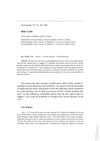 9 citations,
January 1980 in “Dermatology”
9 citations,
January 1980 in “Dermatology” Hair casts may be caused by repetitive hair pulling or styling and are often misdiagnosed.
3 citations,
February 2022 in “Journal of Dermatological Science” Early onset female hair loss is linked to lower hair density, scalp issues, and certain genetic factors.
1 citations,
July 2015 in “PubMed” Human hair's strength comes from a honeycomb-like structure and macrofibrils.
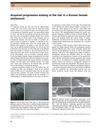 1 citations,
October 2012 in “The Journal of Dermatology”
1 citations,
October 2012 in “The Journal of Dermatology” A Korean girl developed kinky hair without known cause or effective treatment.
 February 2020 in “International Journal of Research in Dermatology”
February 2020 in “International Journal of Research in Dermatology” Platelet rich plasma is not proven as a treatment for hair loss despite some improvements.
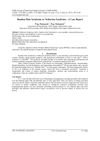 April 2017 in “IOSR journal of dental and medical sciences”
April 2017 in “IOSR journal of dental and medical sciences” Netherton Syndrome is a non-treatable genetic disorder in children causing skin, hair, and allergy issues.
37 citations,
October 2015 in “PeerJ” Perming significantly changes hair's molecular structure, while shampoo and conditioner do not.
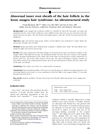 31 citations,
December 2010 in “Journal of the American Academy of Dermatology”
31 citations,
December 2010 in “Journal of the American Academy of Dermatology” Loose anagen hair syndrome is caused by structural abnormalities in the hair follicle's inner root sheath.
 26 citations,
January 2016 in “Annals of Dermatology”
26 citations,
January 2016 in “Annals of Dermatology” Ecklonia cava polyphenols help increase human hair growth and reduce hair loss.
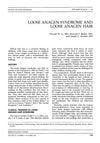 25 citations,
October 1996 in “Dermatologic Clinics”
25 citations,
October 1996 in “Dermatologic Clinics” Loose Anagen Syndrome causes easy-to-pull, thin hair, mainly in young girls, and improves with age.
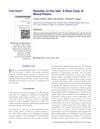 10 citations,
January 2013 in “International journal of trichology”
10 citations,
January 2013 in “International journal of trichology” A woman's scalp nodules were successfully treated with antifungal and anti-lice medications, revealing a rare case of mixed piedra infection.
 2 citations,
August 2021 in “Skin appendage disorders”
2 citations,
August 2021 in “Skin appendage disorders” White piedra is a rare hair infection treated with oral and topical antifungals.
 January 2020 in “Journal of dermatology research and therapy”
January 2020 in “Journal of dermatology research and therapy” Most over-the-counter hair loss treatments lack strong evidence of effectiveness but cost nearly as much as the proven treatment, minoxidil.
July 2002 in “Journal of Cosmetic Dermatology” Laser and Eflornithine are more effective for hair removal than traditional methods.
 November 2018 in “Biomedical Journal of Scientific and Technical Research”
November 2018 in “Biomedical Journal of Scientific and Technical Research” Long-Acting Platelet Rich Plasma therapy can effectively reduce hair shedding, thicken hair, and promote new growth in women with pattern hair loss.
 759 citations,
February 2009 in “Current Biology”
759 citations,
February 2009 in “Current Biology” Hair follicles are complex, dynamic mini-organs that help us understand cell growth, death, migration, and differentiation, as well as tissue regeneration and tumor biology.
 98 citations,
June 2001 in “Journal of biological chemistry/The Journal of biological chemistry”
98 citations,
June 2001 in “Journal of biological chemistry/The Journal of biological chemistry” A cluster of sulfur-rich hair protein genes was found on chromosome 17.
 96 citations,
January 2013 in “International Journal of Trichology”
96 citations,
January 2013 in “International Journal of Trichology” Trichoscopy is a useful, non-invasive way to diagnose different types of hair loss.
 95 citations,
February 2019 in “The New England Journal of Medicine”
95 citations,
February 2019 in “The New England Journal of Medicine” Mutations in the PADI3 gene are linked to a higher risk of scarring hair loss in women of African descent.























